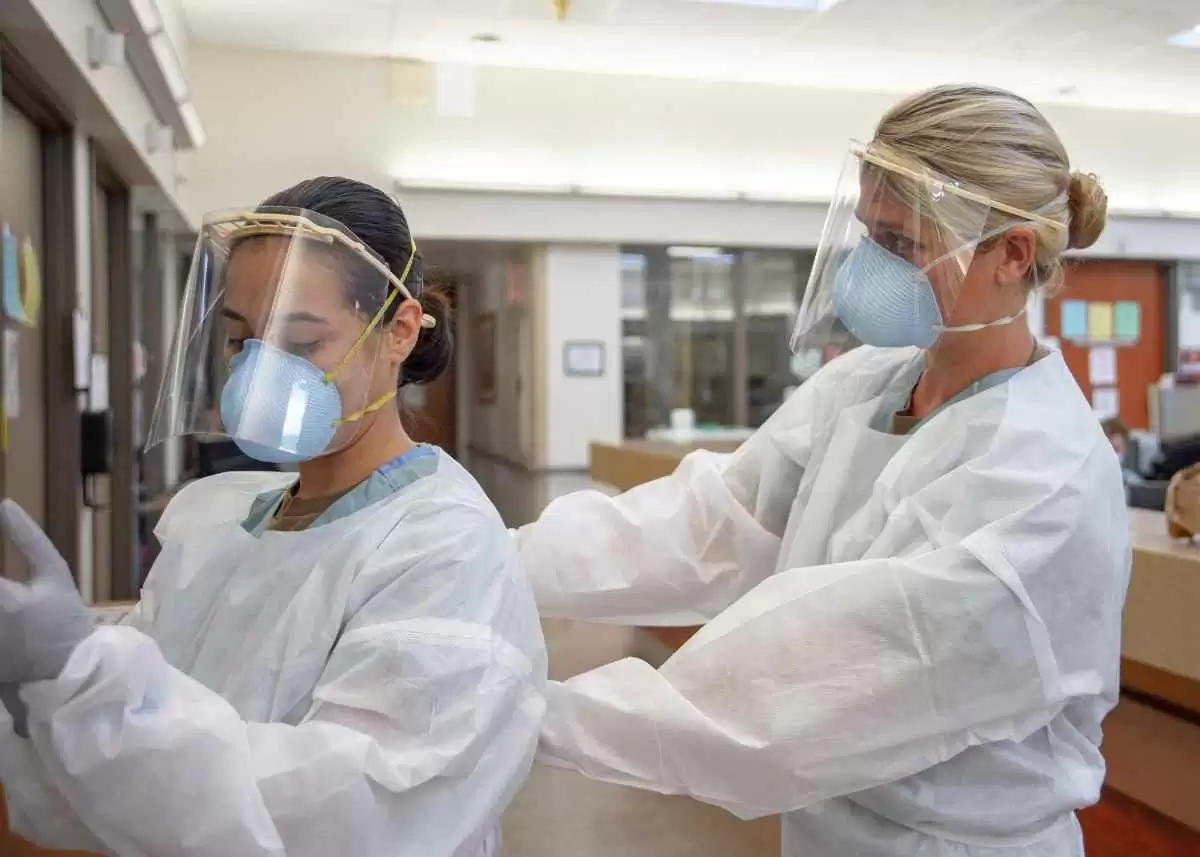
Celiac.com 02/28/2023 - Previous studies have suggested that viruses may trigger the development of autoimmune diseases such as celiac disease.
A team of clinicians report on the case of a 75-year-old man who developed intractable diarrhea after contracting COVID-19. In their case report, the team describes what they believe is the first case report of asymptomatic celiac disease and microscopic colitis unmasked by COVID-19.
Celiac.com Sponsor (A12):
The team includes Tze Shien Lo, MD, Joshua D. LeClaire, DO, Rajib K. Lala, MD, Fadel Nammour, MD, and Kristine Saunders, MD. They are variously affiliated with the Infectious Disease Service, Fargo VA Healthcare System, Fargo, North Dakota; the Pathology Service, Fargo VA Healthcare System, Fargo, North Dakota; the Medicine Service, Fargo VA Healthcare System, Fargo, North Dakota; the Gastroenterology Service, Fargo VA Healthcare System, Fargo, North Dakota; and the Pathology Service, Fargo VA Healthcare System, Fargo, North Dakota.
The team suspects that the COVID-19 either revealed or triggered histology-proven celiac disease and microscopic colitis, which caused the diarrhea.
Viruses Can Trigger Celiac Disease
Multiple studies have suggested reovirus, rotavirus, enterovirus, adenovirus, hepatitis C virus, and other viruses may serve as triggers for the development of autoimmune diseases, such as celiac disease.
The case report tells the story of a 75-year-old man was on a solo driving trip across the USA and developed COVID-19-related symptoms, and then subsequently developed symptoms of celiac disease and microscopic colitis. The man had no history of GI diseases, but developed symptoms of anosmia, dysgeusia, fatigue, weakness, nausea, vomiting, abdominal cramping, and frequent diarrhea.
He sought medical attention at a hospital in North Dakota, where he tested positive for SARS-CoV-2. While hospitalized, he experienced severe dehydration and hypokalemia, which improved with intravenous fluids.
Although his stool tests for SARS-CoV-2 and Clostridium difficile were negative, he was found to have celiac disease and microscopic colitis.
The patient was treated with a gluten-free diet and oral budesonide, which resulted in a gradual improvement in his symptoms. He has continued to have formed stool while following a strict gluten-free diet.
As of October 2022, the patient has been off budesonide for two years and continues to have formed stool by following a strict gluten-free diet. However, he experiences abdominal bloating and nausea when inadvertently ingesting food containing gluten.
The case highlights the potential for COVID-19 to unmask underlying autoimmune or inflammatory diseases and the importance of considering noninfectious causes in patients with persistent GI symptoms.
The team advises clinicians to be aware of the potential for celiac disease and microscopic colitis unmasked by SARS-CoV-2 in a COVID-19 patients who develop intractable diarrhea.
Read more in Annals of Internal Medicine Clinical Cases







Recommended Comments
There are no comments to display.
Create an account or sign in to comment
You need to be a member in order to leave a comment
Create an account
Sign up for a new account in our community. It's easy!
Register a new accountSign in
Already have an account? Sign in here.
Sign In Now